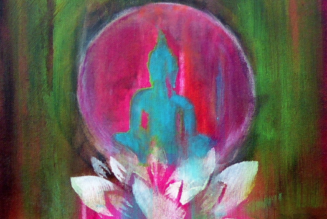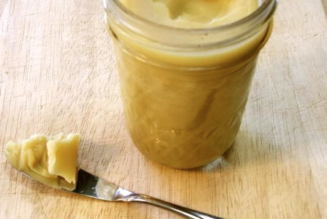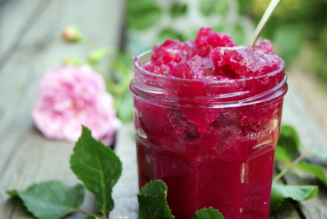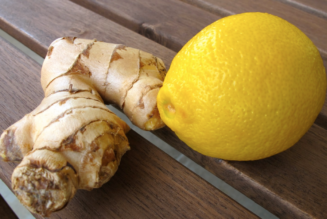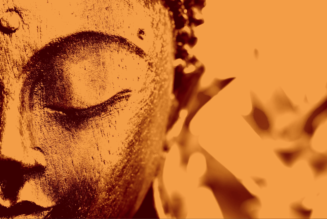The 5 Step Ayurveda Cleanse
Cleansing is perhaps the easiest, least expensive, and most important element of maintaining health. Health implies balance and research shows that the impact of good health on the quality of life is far-reaching, regardless of your age or sex. However, when impurities and toxins accumulate within the cells, the body as a whole suffers. Although, the health industry is a ‘disease and sickness’ industry – Ayurveda, on the other hand, is more than a mere system of treating illness. Instead, Ayurveda is a science of life which offers wisdom designed to help people stay healthy while realizing their full human potential. For example, Ayurveda provides guidelines on ideal daily and seasonal routines, i.e. “panchakarma”.
“An ounce of prevention is worth a pound of cure.”
The word “panchakarma” comes from the the classic texts of Ayurveda, and means ‘five actions’. These five actions of panchakarma refers to a cleansing process used to remove impurities from the body. Panchakarma is a very powerful and effective cleansing program. Although a complete panchakarma cleanse should always be performed under the guidance of a qualified professional, in this post we will discuss a more simple and practical “home Ayurveda cleanse”. An Ayurveda cleanse is a wonderful detoxification program especially as a seasonal cleanse. This cleanse is beneficial as a routine preventative measure, helps reverse the buildup of toxins [“ama”], and is even helpful for specific conditions as we will discuss later.
Sri Sri Ayurveda Panchakarma – Art Of Living
Sri Sri Ayurveda Panchakarma is an initiative of the Art of Living Foundation, specializing in holistic wellness and rejuvenation through ayurvedic practices and alternative therapies under the guidance of Sri Sri Ravi Shankar. Sri Sri Ayurveda Panchakarma was established with a vision to bring the best of ayurveda to the world.
“Home Ayurveda Cleanse”
1. Preparation – Slowing Down
2. Internal Oleation
3. External Oleation
4. Purgation
5. Rejuvenation
1. Preparation
Before considering a home Ayurveda cleanse, it is advised to gradually become less active at least a week prior to the cleanse. Likewise, dietary choices should become more simple. For example, a kitchari diet is often ideal. Also, evey night during the home Ayurveda cleanse it is advised to have 1/2 to 1 teaspoon of triphala. Tripala has many nourishing health benefits such as being an antioxidant and also has a mild laxative effective. Therefore, every night for the home Ayurveda cleanse, triphala should be taken about 1 hour after your evening meal which will help with both elimination and the cleansing process.
Triphala
Simply add about 1/2 to 1 teaspoon of triphala into a 1/2 cup of boiling water. Let the mixture steep for 10 minutes until warm, then drink.
Triphala Plus
Supports digestive system and elimination; assists body in absorbing nutrients; high-quality antioxidant; wide range of benefits.
2. Internal Oleation – [Days 1- 3]
We begin our home Ayurveda cleanse with “internal oleation”. This involves ingesting warm liquid ghee [clarified butter] on an empty stomach first thing in the morning – for the first three days. Ideally, consider having 2 tablespoons of warm ghee, either alone or you may prefer taking a few small sips of warm water after ingesting the ghee. The ingestion of ghee provides internal oleation and lubrication, which is necessary to bring fat soluable toxins [“ama”] from deep bodily tissue back to the G.I. tract. Our goal is to bring toxins from deep bodily tissue back into the intestinal tract which will eventually be eliminated; hence purification. Also, as a general rule, It is important to be observant making sure to eat only after true hunger has returned.
Special Considerations:
If not accustomed to having ghee first thing in the morning especially on an empty stomach, you may experience feeling nauseous. Therefore, a few simple considerations to help prevent this uncomfortable feeling.
Vata Types:
Considering adding a pinch of rock salt with your ghee
Pitta Types:
Considering adding 1/8th tsp of roasted cumin powder
Kapha Types:
Consider adding a pinch of trikatu with your ghee
3. External Oleation – [Days 4 – 8]
After completing the first three days of internal oleation – which is the ingestion of warm ghee first thing in the morning on an empty stomach – you are now ready for “external oleation” for the following 5 days. External oleation involves applying about 8 ounces of warm oil onto your skin. Gently massage the oil over your body for at least 20 minutes beginning with your feet and working your way up to your head. While massaging your extremities [i.e. arms and legs] make long strokes and while massaging your joints, consider circular motions. Similarly, while massaging your abdomen you should gently massage in a circular motion. Finally, apply oil to your head and hair making sure to include the external ear and this is very balancing and stress reducing.
Moisturizing Herbal Massage Oils
Personalize your daily massage with herbal massage oils.
Rest & Shower
After having massaged your entire body with warm oil for about 20 minutes, it is now a time to rest for about 5-10 minutes before taking a nice warm shower. While resting during this short duration before your shower, it’s important to stay warm. Therefore, in order to remain warm and avoid losing ambient heat, consider keeping your bathroom comfortably warm and stay wrapped in a towel.
A Nice Warm Shower
After having applied warm oil onto your skin and massaging it throughout your entire body – it’s now time for a nice warm shower. Consider, using a mild Ayurvedic herbal soap, for example neem soap and chamomile shampoo. It is also considered beneficial to allow some of the oil to remain on your skin even after having taken shower.
Herbal Body Cleansing Soaps
A special blend of ayurvedic herbs creating a light and fresh herbal soap bar which cleanses deeply.
4. Purgation – [Days 6 – 8]
Throughout the entire process of the home panchakarma cleanse, impurities from different parts of the body have been loosened and drawn into the intestinal tract. Now we are ready to eliminate these toxins through the process of purgation. Apart from the recommended evening use of triphala, as described above – the last three days of your home Ayurveda cleanse involves purgation by the use of a medicated enema called “basti”.
Basti
Consider making a dashamula tea for the enema mixture. Simply boil 1 tablespoon of the herbal mixture of dashmula into a pint of water for approximately 5 minutes. Let this dashamula tea cool, then strain, and then use it as an enema. Once the enema has been administered into the rectum, retain the liquid for as long as you comfortably can.
Ayurvedic Detox Program
2-4 capsules of herbal cleanse before bed will cleanse the bowel.
2 tablets of elim-tox or elim-tox-o morning and evening will cleanse the liver, blood, sweat glands and the elimination system.
2 tablets of organic genitrac morning and evening will purify the urinary tract and assist the removal of toxins.
Note:
We recommend that after completing your cleanse, you continue with organic digest tone (triphala plus) to support healthy elimination and digestion.
A Word Of Caution:
It is always advised to have assistance from a qualified professional for therapeutic procedures such as “basti”.
5. Rejuvenation
For maintaining wellness, the purpose of this home Ayurveda cleanse is to purify the body by removing impurities. After completing this cleanse, it is important to begin rejuvenating the body once again so that you can enjoy good health while strengthening the body in order to prevent any future health conditions; i.e. disease. Ayurveda recommends rejuvenatives called “Rasayanas” which brings renewal to all the cells of the body resulting in good health and longevity. According to Ayurveda, “Rasayanas” build overall immunity while providing strength and vitality.
Amrit Kalash – “The Nectar Of Immortality”
Amrit Kalash is thought to be the ambrosial gift to bring about health and happiness for all of humanity. Traditional ayurvedic formula of 13 herbs that supports the health of mind, brain, and nerves; increases vitality and inner strength; powerful antioxidant — research shows it to be up to 1,000 times more effective than vitamins C and E
Full-spectrum antioxidant: targets mind & nervous system
- 1000x more effective in eliminating free radicals (the root cause of aging) than vitamins C or E1
- powerful food for the brain
- significantly boosts immunity & vitality
Special Considerations:
Vata Types:
An excellent Rasayana for vata types is ashwagandha. Simply, mix 1 teaspoon of ashwagandha in a cup of warm milk and drink. Consider having this twice daily, in the morning and evening.
Pitta Type:
An excellent Rasayana for pitta types is shatavari. Mix 1 teaspoon of shatavari in a cup of warm milk and drink.
Caution:
If there is any lump in the breast or family history of breast cancer, it is best to avoid shatavari and instead consider substituting guduchi for shatavari as a rasayana for pitta types.
Kapha Types:
An excellent Rasayana for kapha types is punarnava. Therefore. mix 1 teaspoon of punarnava in a cup of warm water and drink.
Few Additional Suggestions:
While finishing your home pancharkarma cleanse, it is important to slowly and gradually resume your daily activities. Therefore, make sure to get plenty of rest and making sure to eat accordingly to your appetite making sure not to overindulge. Lastly, it is important to establish a healthy daily routine [“dinacharya”] which incorporates the activities of yoga, meditation, and pranayama.
Resource:
This home Ayurveda cleanse is inspired by the teachings of Dr. Vasant Lad. Dr. Lad is both a physician and professor who is considered one of the foremost expects on the subject of Ayurveda. Each year, Dr. Lad travels throughout the world, consulting privately and giving lectures. Coming to the United States in 1979 and lecturing for over 30 years, Dr. Lad has influenced and touched the hearts of his students.
Disclaimer
The sole purpose of these articles is to provide information about the tradition of ayurveda. This information is not intended for use in the diagnosis, treatment, cure or prevention of any disease. If you have any serious acute or chronic health concern, please consult a trained health professional who can fully assess your needs and address them effectively. If you are seeking the medical advice of a trained ayurvedic expert, call or e-mail us for the number of a physician in your area. Check with your doctor before taking herbs or using essential oils when pregnant or nursing.
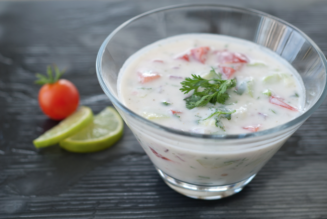
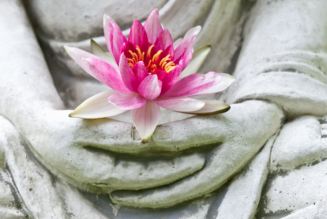
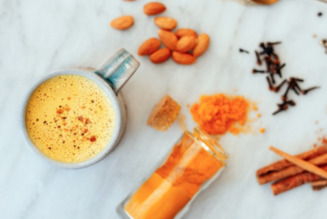
![Female Health: Amenorrhea [cessation of menses] – An Ayurvedic Perspective](https://healthyayurveda.com/wp-content/uploads/2015/07/1.-Amenorhea--327x219.png)
